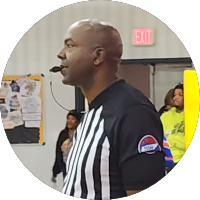Beyond “Open to Work”?
- Bryan Murray

- Aug 13, 2025
- 2 min read
LinkedIn gave us a simple banner that says a lot: #OpenToWork.It signals to recruiters, colleagues, and potential employers that you’re ready — ready to re-enter the market, pivot roles, or land your next opportunity.
But what if we went one layer deeper?
What if we weren’t just open to work, but open to possibility?
The Narrow Lens of Experience
Most of us interpret "open to work" through a narrow lens — usually the kind of work we’ve already done. That makes sense.It’s where we’ve built credibility, honed our skills, and can command the most income.
But that comfort zone can shrink our aperture.When we're only open to what we know, we might miss what we could become.
Take a friend of mine, for example.He spent years as a high-performing sales manager for a major coffee chain. It was fast-paced, results-driven, and familiar.
Then he made a move that surprised even him: he transitioned into nonprofit leadership.
Same skills — managing people, communicating clearly, driving outcomes — but in a completely different context.Now? He’s having the time of his life. The alignment, purpose, and satisfaction are off the charts. And it all started with being open — not just to another job, but to a new kind of work.
We Used to Be More Flexible
Think back to college.We were curious. Open. Willing to try things outside our comfort zones.
Fast forward 10, 15, 20 years, and that flexibility often fades.Even though the average American changes jobs 12.4 times by age 54 (U.S. Bureau of Labor Statistics), most changes are lateral — not transformational.
And as we approach the final third of our working years, change feels riskier.We’ve built a professional identity, and stepping outside of it feels uncomfortable — even if the current role no longer fits.
Being Open to Possibility Isn’t Reckless — It’s Strategic
Being “open to possibility” doesn’t mean abandoning your expertise.It means being willing to retool it. To take what you’ve built and ask:
Where else could this apply?
What if fulfillment, flexibility, or alignment mattered just as much as title or salary?
What would I try if I wasn’t afraid of starting over?
I’ve coached professionals who started out just “open to work.” But with a few probing questions and some honest reflection, they realized they were really open to more:
More impact
More meaning
More energy
More alignment
Here’s Your Coaching Prompt:
If you’re “Open to Work,” that’s a great first step. Now ask yourself:
What would it mean to be truly open — not just to employment, but to possibility? Where might your strengths take you if you gave yourself permission to imagine something different?
Let’s explore that together. I'm not here to push you into a leap — I'm here to help you widen the lens and see what else is possible.




Comments